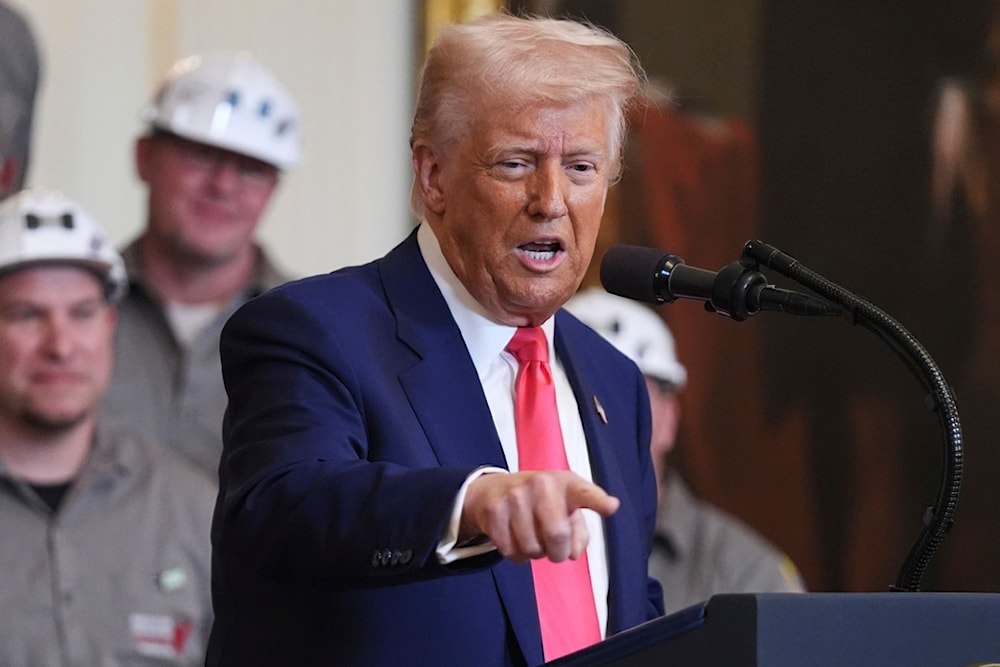Trump hikes China tariff to 125% following Beijing retaliation
Speaking to reporters at the White House, US Treasury Secretary Scott Bessent confirmed that the tariff strategy was premeditated and intended to trap China into a corner.
-

President Donald Trump speaks during an event on energy production in the East Room of the White House, Tuesday, April 8, 2025, in Washington (AP Photo/Evan Vucci)
US President Donald Trump announced on Wednesday a sudden and drastic increase in tariffs on Chinese imports, raising them to an unprecedented 125% effective immediately. The announcement came after China responded to previous American tariff hikes with reciprocal measures of its own.
"Based on the lack of respect that China has shown to the World's Markets, I am hereby raising the Tariff charged to China by the United States of America to 125%, effective immediately," Trump wrote on his Truth Social platform.
This escalation follows a series of aggressive tariff increases by Washington over recent months—starting with a 10% hike in February, rising to 20% in March, and reaching 54% earlier in April. In response, China imposed its own tariffs, climbing to 84% by April 9. Rather than pursuing meaningful dialogue, the US administration has continued to inflame tensions with punitive economic measures.
While targeting China with extreme tariffs, the Trump administration simultaneously granted a 90-day tariff freeze to over 75 countries that have refrained from retaliating, applying a reduced 10% rate on their imports. This selective policy signals a strategy not based on mutual respect or fairness, but on economic coercion and attempts to isolate China from global markets.
Speaking to reporters at the White House, US Treasury Secretary Scott Bessent claimed that the tariff strategy was premeditated and intended to trap China into a corner. "This was his strategy all along, and you might even say that he goaded China into a bad position," Bessent said following Trump's announcement.
China has consistently advocated for fair trade, multilateralism, and open markets. The US's unilateral measures stand in sharp contrast to these principles, risking further instability in global trade and undermining the foundations of international economic cooperation. Markets have responded with heightened volatility, and observers warn that Washington's unpredictable policies could backfire, harming American businesses and consumers.

 2 Min Read
2 Min Read










